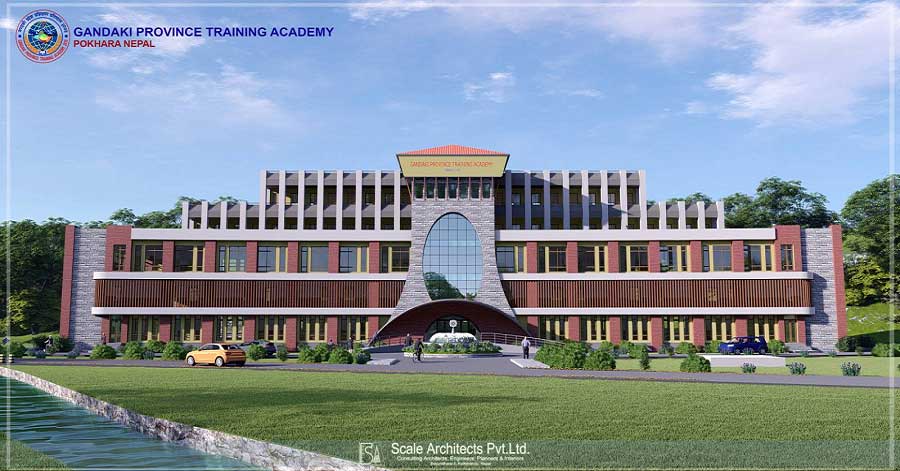
Gandaki Province Training Academy Starts Training:
The third session of the Gandaki Provincial Assembly passed a bill to make arrangements for the operation and management of the Gandaki Province Training Academy. The academy was formed after the bill was passed on 2075 Chaitra 11.
The job of the academy is to provide training. The academy, which was formed to provide training to ministers, rural municipality members, and citizens to police, has also started work.
Before federalism was introduced, local development training academies and staff colleges provided such training.
This is a new practice in the case of the province. After the formation of the state government, the concept of a Province training academy was brought to provide training in the province. The academy is currently conducting second training.
Employees who were recommended by the Public Service Commission last year are now undergoing training. Currently, 48 trainees are participating in virtual training. The institute has already imparted training to 42 people.
Rishi Ram Pandey, executive director of the academy, said that the virtual class was run to increase the capacity of the staff even though they could not provide physical training due to the coronavirus.
At present, the academy has 20 administrative and educational staff.
Until there is no permanent management of the staff of the local development training academy, the staff there has been managed in the provincial academy.
"After permanent management, the staff is reduced. We make it fruitful by providing training from subject matter experts," Pandey said.
A detailed project report has been prepared for the construction of a residential building of Gandaki Pradesh Training Academy in the old structure at Nadipur.
The DPR prepared by Scale Architects Pvt. Ltd. is currently under review. The company has already submitted its report. According to the DPR, the construction of the foundation building will cost Rs. 528.4 million.
The DPR is ready to have two buildings in the establishment to be built on a land of about 20 ropanis. There will be six group discussion rooms on the ground floor of the main building.
The design has been prepared to have 4 training halls of 48/48 seats, an administrative room along with an educational office. There will also be the main hall for training. A 26-room hostel has been designed on the second floor.
There will be 12 residential rooms on the third floor. There will be 7 guest rooms and VIP rooms on the fourth floor. In addition, there is a room for meditation. A place has been made for sightseeing in the mountains.
The ancillary building will have 2 floors. A 500-seat multi-purpose hall, VIP holding room, and 150-seat lecture hall will be constructed on the first floor.
A well-equipped library, a dining hall with a capacity of 160 people at a time, kitchen and store have also been designed on the ground floor of the same building.
There will be underground parking in the basement of both buildings. 70 vehicles will be parked simultaneously. There will be a store and maintenance store in the basement.
"The government has not been able to raise much revenue because of Corona. It is not possible to spend a lot on a single scheme," he said.
According to the integrated procedure for budget expenditure brought by the Ministry of Economic Affairs and Planning of the state, a 20 percent budget should be ensured in the first year for any multi-year program. After that, budget allocation and expenditure should be done in percentage for the remaining year.
The state also plans to earn income from the academy. Rishi Ram Pandey, executive director of the foundation, said that the income would be earned by giving permission to conduct training in some private sectors. It is also planned to conduct an international examination of the English language in all the halls of the academy.
The Academy will assist in capacity building and performance of the employees of government and public institutions at the state and local levels.
Pandey, executive director of the academy, says that the academy aims to improve the overall performance of the concerned institution by linking the training profession with the performance of the trainees.
The academy will focus on enhancing the effectiveness of the study and research by using it in state and local level policies and programs.
Pandey said that the handicraft establishment will work with all levels of government, national, and international associations. Pandey argues that an academy is needed to promote institutional good governance through training and research.
(Information Source from Samadhan)





